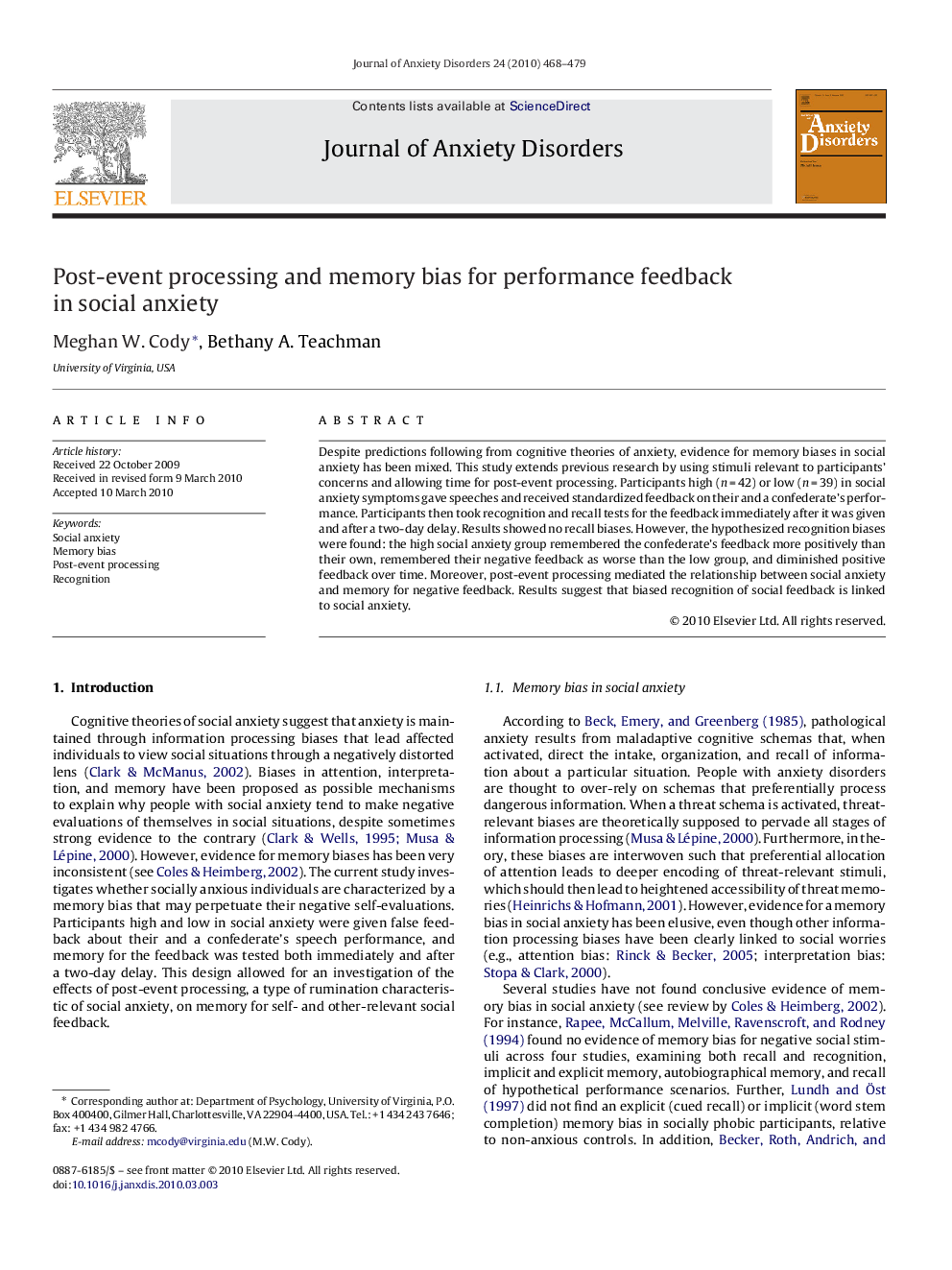| Article ID | Journal | Published Year | Pages | File Type |
|---|---|---|---|---|
| 909871 | Journal of Anxiety Disorders | 2010 | 12 Pages |
Despite predictions following from cognitive theories of anxiety, evidence for memory biases in social anxiety has been mixed. This study extends previous research by using stimuli relevant to participants’ concerns and allowing time for post-event processing. Participants high (n = 42) or low (n = 39) in social anxiety symptoms gave speeches and received standardized feedback on their and a confederate's performance. Participants then took recognition and recall tests for the feedback immediately after it was given and after a two-day delay. Results showed no recall biases. However, the hypothesized recognition biases were found: the high social anxiety group remembered the confederate's feedback more positively than their own, remembered their negative feedback as worse than the low group, and diminished positive feedback over time. Moreover, post-event processing mediated the relationship between social anxiety and memory for negative feedback. Results suggest that biased recognition of social feedback is linked to social anxiety.
